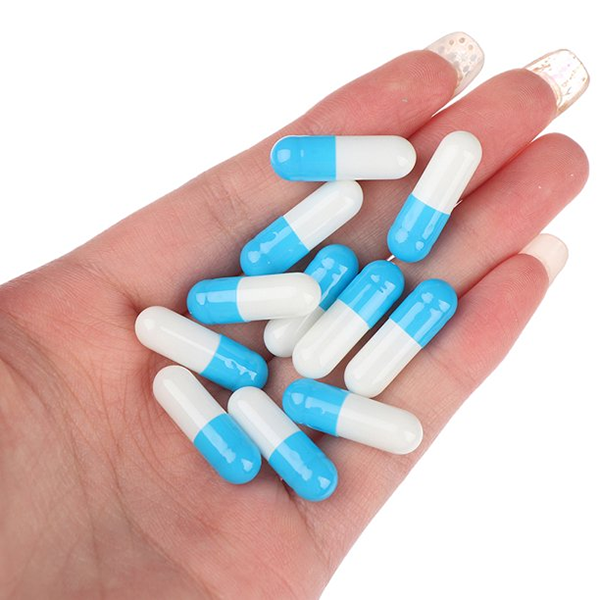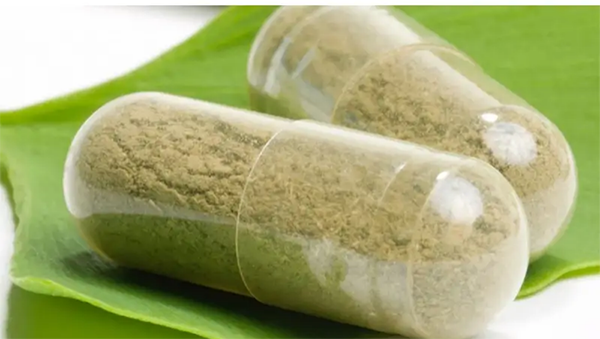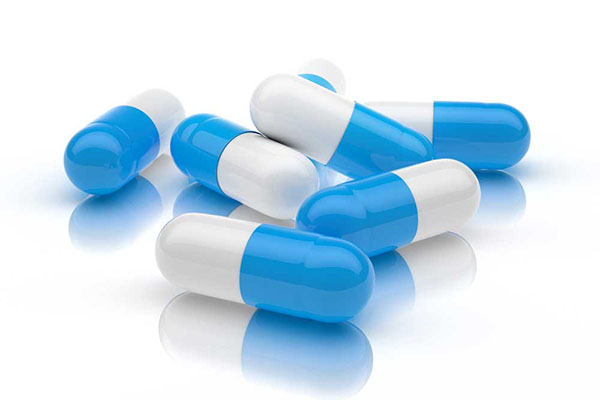Introduction
As it is a key step in the manufacture of the products being offered suppliers as well capsule manufacturers themselves have to understand how empty capsules are made.
Because they understand the manufacturing process thoroughly, Empty Capsule Suppliers can provide their customers with quality-grade capsules. By using this information, suppliers can make sure they buy the right raw materials and follow industry rules and regulations so that quality remains high. Suppliers can avoid disrupting their supply chain by grasp the manufacturing process, preparing for any possible issues or challenges and formulating solutions.

For the sake of maintaining control over quality and dependability, capsule producers must understand this manufacturing process. By following the complexities of manufacturing, capsule companies can choose wisely when it comes to raw materials, right methods for production and quality control. The knowledge of generating suitable capsules which are the right size, weight and stable is needed to achieve safe and effective transportation of all types on pharmaceutical ingredient.
Types of Capsules
The two main types of capsules used in the pharmaceutical industry are gelatin and vegetarian. The ingredients in these capsules change according to different dietary and cultural habits.
The most commonly used kind of capsule in pharmaceutical applications is the gelatin capsule. These capsules are composed of gelatin, a protein extracted from animals such as pigs or cattle. Just a few of the numerous advantages provided by gelatin capsules are long shelf life, ease of filling and sealing, and compatibility with both powders, granules as well as liquid. But since gelatine is obtained from animals, it presents a problem for vegetarians and vegans.
On the other hand, plant-based materials such as hydroxypropyl methylcellulose (HPMC) or other cellulosic derivatives are used in making vegetarian capsules. Because these cellulose-based capsules have no ingredients of animal origin, they meet the needs of vegetarian and vegan consumers. People for whom dietary requirements are governed by religion or culture also prefer vegetarian capsules. On the other hand, vegetarian capsules are likely more expensive and have a less long shelf life than gelatin ones. Worst of all, they work much worse with some formulations.

Gelatin Capsules Manufacturing
To ensure quality, capsule factories employ a strict regime in buying raw materials for gelatin capsules production. The sourcing process is extremely important, because it directly affects the quality and usability of the end product.
Selecting reliable suppliers is an important part of the process in sourcing raw materials for gelatin capsules. Capsule factories generally maintain a close relationship with reliable suppliers who have been producing quality materials for years. These suppliers are usually certified and meet industry standards and regulations. Capsule factories can guarantee consistency and reliability in sourcing raw materials by working with reliable suppliers.
The materials for making gelatin capsules are basically of animal origin, such as bovine or porcine collagen. Two, capsule factories join forces with suppliers that have stable supply chains to make sure the raw ingredients are from a reliable and traceable source. Many raw material suppliers, in accordance with strict guidelines and regulations, guarantee the quality of their materials.
Another important aspect of maintaining standards is strict testing and quality control procedures. Capsule factories undertake strict inspections of raw materials to see that suppliers are meeting quality standards. Among them are tests for purity, microbiological contamination and a number of quality parameters.
Standards of high quality are also a question of control over the entire manufacturing process, from handling raw materials to producing capsules. To avoid any contamination, quality control systems in capsule factories start with making sure that the raw materials are stored properly and the manufacturing environment is clean and stable.
Vegetarian Capsule Manufacturing
But selecting raw materials to make vegetarian capsules, plant-based polymers are one of the most important criteria. HPMC, the most commonly used polymer in vegetarian capsule production, is made by treating cellulose with sulfuric acid. HPMC is a good choice for capsules because it contains no animal products, and thus suitable to vegetarians or vegans. In other cases, modified starches replace plant-based polymers.
Another consideration is the quality and purity of raw materials. Vegetarian capsule manufacturers choose materials from secure sources, ensuring they are in accordance with quality standards and legislation. This involves not only ensuring that the raw materials are free of contaminants, conform to proper particle size requirements and have consistent quality or performance.

The level of workmanship is also an important consideration. The chosen raw materials must have those properties needed to produce capsules that conform with the desired specifications. It involves such criteria as the ability to form a hard, tact and stable capsule shell; resistance to moisture ineffective dissolution properties etc.
Besides, when it comes to vegetarian capsule production, sustainability and environmental impact are also factors. Capsule companies may seek to choose raw materials that come from sources which are sustainable and renewable. This is aligned with the preferences of environmentally-conscious consumers and supports sustainability commitments of capsule manufacturing companies.
Quality control in empty capsule manufacturing
Making empty capsules is a process of quality control, which involves running various tests to check the quality and integrity. Some of the tests conducted by hard-shell capsule manufacturers include:
1.Quality checks on raw materials: Tests of the raw materials such as gelatin or vegetarian polymer are carried out by manufacturers to ensure that they conform with quality standards and specifications. This involves measuring such factors as purity, viscosity and moisture content.
2.Physical testing: Capsule manufacturers perform physical tests on size, weight and appearance. This guarantees that the capsules are of suitable size and shape. Special equipment measures the length, diameter and wall thickness of each capsule to make sure everything is consistent from one stage in production to another.
3.Dissolution testing: Dissolution testing is used as a standard method to test the ability of capsules to dissolve and release their contents. This test evaluates the capsules 'performance in different pH conditions and helps ensure that they dissolve or disintegrate, releasing encapsulated material within an appropriate amount of time.
4.Moisture analysis: If the capsules absorb moisture they will affect their stability and quality. Therefore, manufacturers perform moisture analysis tests to find out how much water is in the capsules. In other words, it keeps the shells in a moisture range not conducive to decomposition and microbial growth.
5.Microbiological testing: Manufacturers use the microbiological test to determine whether harmful microorganisms are present. It is necessary because the quality standards for microbiology are very strict, and this helps to ensure that the capsules aren't contaminated.
6.Quality control of printing and labeling: Manufacturers also perform tests of printing and labeling quality to guarantee that the information given for capsule recalls is accurate, legible and in accordance with regulations.
b. Innovative technologies are used to improve the quality control process in today's capsule companies. These technologies include:
7.Automated inspection systems: Sophisticated automated inspection systems, which use machine vision technology to detect defective or abnormal capsules produced by manufacturers of such products. By using such systems, problems like cracks or color variations can be detected and misshapen capsules weeded out. Only high-quality seeds are passed on for further processing after this point.
8.Plants have installed real-time monitoring systems, including sensors and data analytics. These track key parameters such as temperature, humidity levels and airflow. This enables manufacturers to keep manufacturing environments at peak, so that any deviations or variations which may affect capsule quality can be detected and rectified in the shortest time possible.

Challenges in Empty Capsule Manufacturing
International regulatory landscapes present major obstacles to hard shell capsule manufacturers. The main users of these capsules, the pharmaceutical and dietary supplement industries have strict laws across the world. The production process is affected by having to change and keep changing in order to remain adaptive with respect for a large number of ever-changing standards.
There are also global differences in regulatory requirements concerning production methods, raw materials and product labeling. Capsule manufacturers must invest heavily in strong quality control systems to ensure compliance with local laws in each market. It means strict testing of raw materials, process and end products to adhere with the different requirements set by various health authorities.
In addition, the production process becomes more complicated because detailed documentation and transparency are required.
Conclusion
This is vital knowledge for both suppliers and the capsule companies themselves. It guarantees the manufacture of high quality capsules which conform to regulations and customer requirements. By understanding this process, vendors can choose the right input materials and ensure stable product quality. Capsule companies now have information to guide their decision making on production techniques, methods of quality control and formulation compatibility. Without this knowledge, pharmaceutical products will not be safe or effective and the industry will lose its competitive edge.
Post time: Dec-29-2023






